#Akbar the great
Text
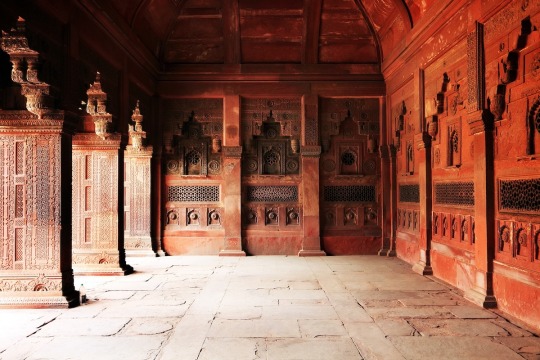
Fatehpur Sikri.
Akbar the Great:The Illiterate Emperor Who Became a Patron of Knowledge and Culture. Exploring the Remarkable Legacy of Emperor Akbar's Libraries, Artistic Endeavors, and Intellectual Pursuits.
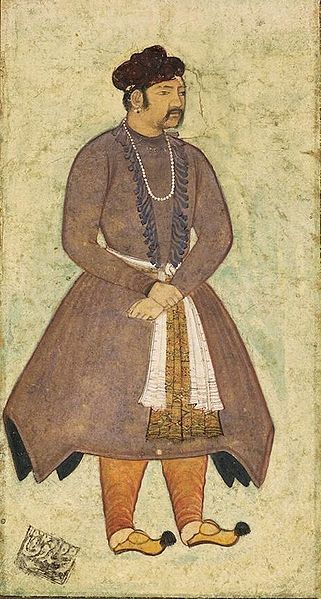
Fatehpur Sikri is located in Uttar Pradesh and it was built by Mughal Emperor Akbar in honour of Sufi saint Salim Chishti in 1571 ( it is now a UNESCO World Heritage site).
Abu'l-Fath Jalal-ud-din Muhammad Akbar, or popularly known as Akbar the Great, was the third Mughal Emperor who reigned from 1556 to 1605.

Despite his illiteracy, Akbar himself was a patron of art and culture. He created a library of over 24,000 volumes written in Sanskrit, Urdu, Persian, Greek, Latin, Arabic, and Kashmiri, staffed by numerous scholars, translators, artists, calligraphers, scribes, bookbinders, and readers. He actively participated in cataloguing these volumes through three main groupings.
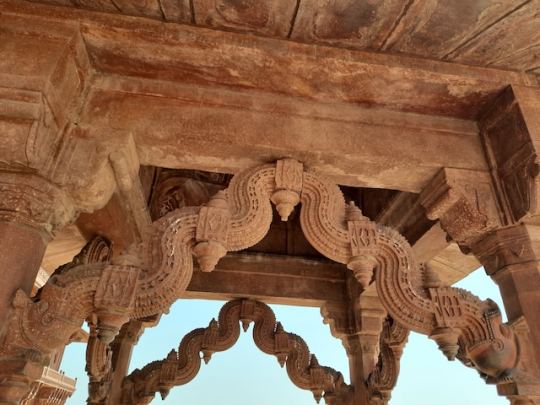
Furthermore, Akbar established the library of Fatehpur Sikri exclusively for women and promoted bookbinding as a high art form. His court attracted holy men from various faiths, poets, architects, and artisans from around the world for study and discussion. Akbar's courts in Delhi, Agra, and Fatehpur Sikri emerged as centres of the arts, letters, and learning.

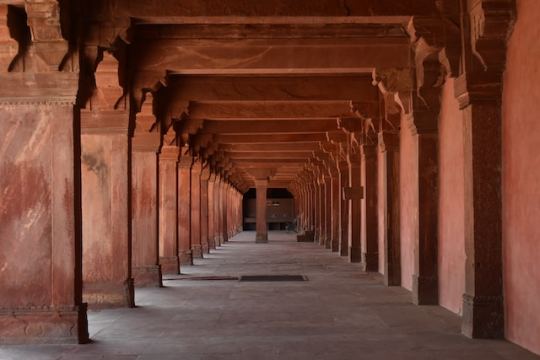
0 notes
Text
Someone ask Pavitr about Akbar the Great
0 notes
Text

#spiritual awareness#advice to live by#love of god#praise the lord#one god#god is in control#sign from god#life reminders#spiritual reminders#god is great#god is love#love god#turn to god#god is the greatest#Allah hu Akbar#gods miracles#spiritual quotes#life quotes#religion quotes#animated gifs#gifs#universe quotes#life advice#word of advice#wise quotes#humanity quotes#god quotes#allah#spiritual path#life is a journey
13 notes
·
View notes
Text

The best book I’ve read so far this year is Martyr! by Kaveh Akbar.
When poets write novels I always get very excited because they enter into their contract with words in a different way to other writers, with a certain level of distrust of language’s abilities, with an understanding of the disappointing paradox in metaphors, and with a playful abandon for convention.
This book is a great example of all of those things. It tore me open so many times and put me back together again, too. It’s got everything — family, identity, death, nationality, history, death, art, politics, death, love, war, did I mention death, and dreams where the dead speak to cartoon characters
#studyblr#studygram#studyspo#bookblr#books#booklr#bookworm#booktok#books and reading#bookish#bookstagram#book review#kaveh akbar#picador#martyr!#minimal
501 notes
·
View notes
Text
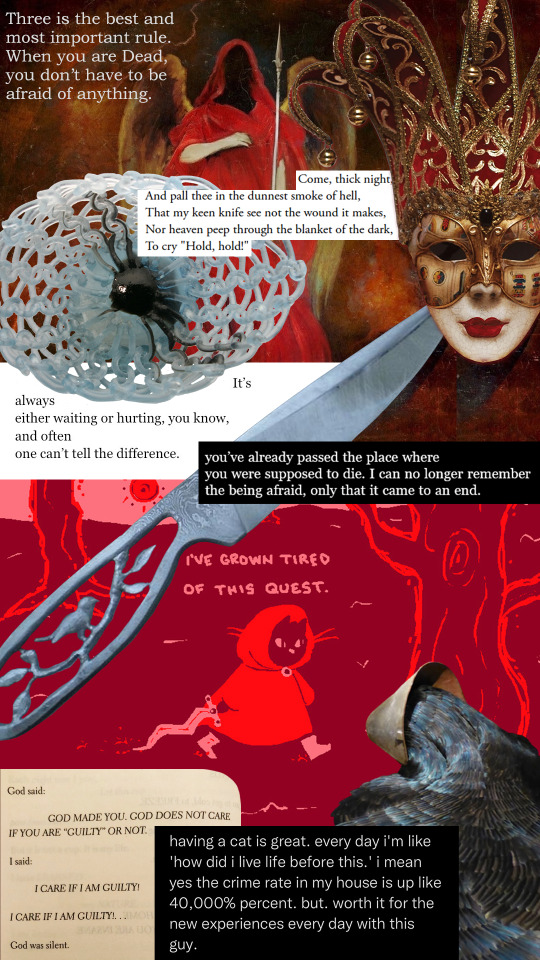

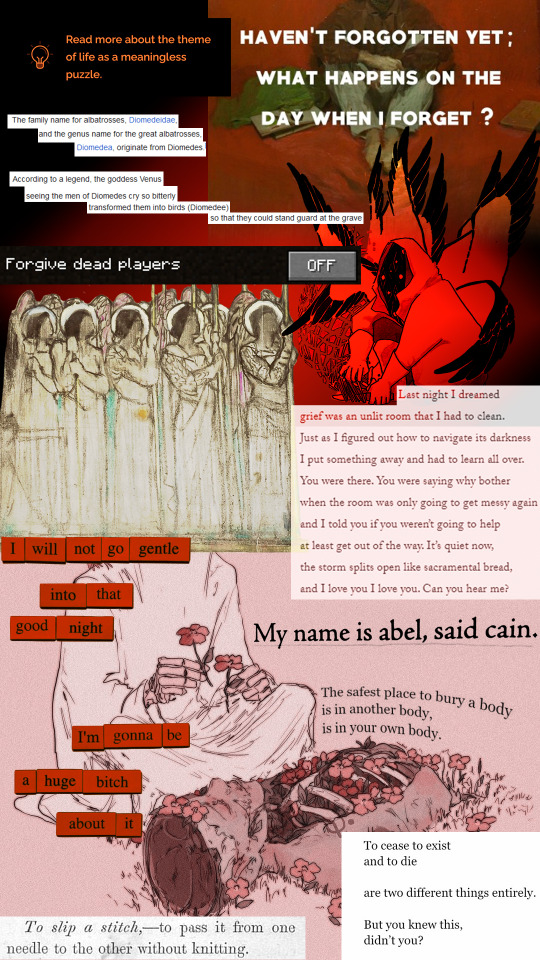

solving counting sheep webweave
MCYTblr AU Fest Summer 2023 // sources under readmore
Created as a treat for the absolutely stunning fic by @theminecraftbee!
What is a webweave?
Previous art: Third Life | Void Falling | Attempt 33 | Martyn | Limited Life | Nightingale Chapter 1 | Chapter 2 | singing songs to the secrets behind my eye | A Hundred Things We Had Not Dreamed Of
Pt. 1: The Specialist’s Hat, Stranger Things Happen p.63 / Kelly Link ◆ Requiem Angel / Daniele Valeriani via @satanasaeternus ◆ Maschera Venetian Joker Mask / Atelier Marega Mask ◆ Macbeth 1.5.57-61 / Shakespeare ◆ Watch / Carol Milne ◆ Excerpt from Salt Is For Curing / Sonia Vatomsky via @geryone ◆ Carved Damascus Steel Bird Knife / Robert Mayo ◆ Excerpt from STOP ME IF YOU’VE HEARD THIS ONE BEFORE, Calling a Wolf a Wolf / Kaveh Akbar ◆ off to finish it at the source / @catcrumb ◆ Excerpt from The War of Vaslav Nijinsky / Frank Bidart ◆ Having a cat is great tweet / @premeesaurus ◆ Secrete / Kate MccGwire via @snailspng
Pt. 2: I am asking you to endure it. / @intactics (Deactivated 12.31.21) ◆ Hi! You have great eyes / @illness (Deactivated 3.25.18) ◆ Taste for Independence Cat / @alisonzai ◆ Support Mental Health pin / @snailspng ◆ A Barn at Kronetorp, Skåne / Gustaf Rydberg ◆ Living: There is a period when it is clear... / Jenny Holzer via @funeral ◆ Neighborhood Plague, Fjords I / Zachary Schomburg ◆ Ugly, Bitter, and True / Suzanne Rivecca ◆ It just keeps happening / @mothcub ◆ Shepherd with Flock of Sheep / Anton Mauve ◆ No Longer Evil cat / @b0nkcreat ◆ Excerpt from All Our Futures / Jody Chan via @geryone ◆ Speak Softly and Carry a Big Stitch / Carol Milne via @knithacker ◆ Deep Dark Fear (9.29.2013) / Fran Krause @deep-dark-fears
Pt. 3: Read more pop-up / @screenshotsofdespair ◆ Combination of Painter Javier Palacios and Enoch 18:14 / @mountainqoats ◆ Wandering Albatross ◆ Diomedes ◆ Forgive dead players: OFF / @screenshotsofdespair ◆ Inktober52 Angel / @lastmousequeen-blog ◆ The Heavenly Host / Violet Oakley ◆ Excerpt from No Rush / Todd Dillard ◆ I will not go gentle magnets / @carpethedamndiem ◆ Excerpt from cain / José Saramago via @ilumark (Deactivated 2.5.22) ◆ Excerpt from Salt Is For Curing / Sonya Vatomsky via @geryone ◆ Purple / @ungfio via @sosuperawesome ◆ Excerpt from Lessons on Expulsion / Erika Sánchez via @geryone ◆ The Practical Companion to the Work-Table, Containing Directions for Knitting, Netting, & Crochet Work / Elizabeth Jackson via @knittinghistory
Pt. 4: Excerpt from A Ghost is a Memory / GennaRose Nethercott via @tolerateit ◆ What’s done is done / @thatsbelievable ◆ Excerpt from Ante body / Marwa Helal via @geryone ◆ Minor Resurrections / Elisa Gonzalez ◆ Mirror ◆ Coming back / @ungfio ◆ Candlestick ◆ Flame
#webweave#solving counting sheep#salem art#web weave#mcytblr#three#mcytblraufest23#mcytblraufest2023#do not remember which of those tags is correct lol#ALSO I believe tagging someone multiple times only alerts them once. if that is not the case a preemptive apology to geryone#i debated including panel 4 at all or under readmore or whatever#but honestly i feel like even if its not as pretty it says something I really want to say
603 notes
·
View notes
Text
dua's to recite after praying ♡
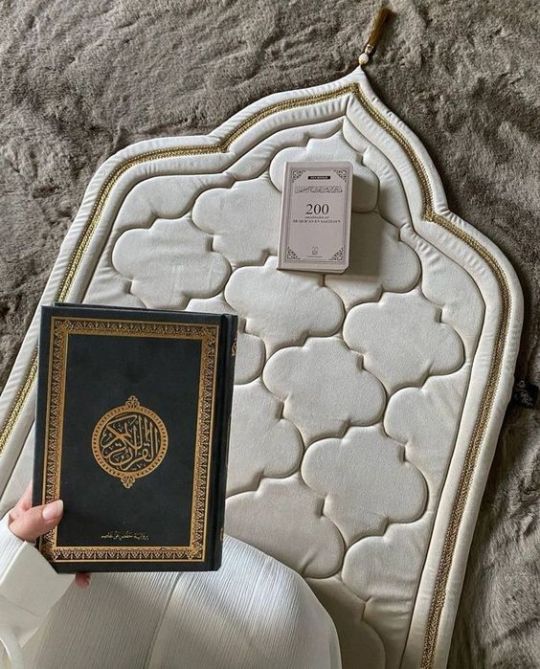

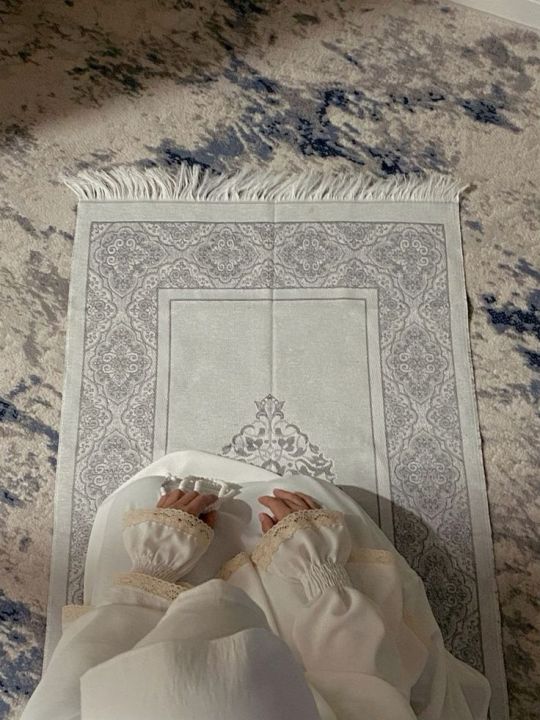
tasbih:
- subhanallah x33
- alhamdulillah x33
- Allah akbar x33
- followed by Laa ilaaha ill-Allah wahdahu laa shareeka lah, lahu’l-mulku wa lahu’l-hamd wa huwa ‘ala kulli shay’in qadeer (there is none worthy of worship except Allah alone with no partner. to Him belongs all sovereignty and praise, and He has power over everything)
it is narrated by Abu Huraira that if anyone extols Allah after every prayer thirty-three times, and praises Allah thirty-three times, and declares His Greatness thirty-three times, ninety-nine times in all, and says to complete a hundred: “There is no god but Allah, having no partner with Him, to Him belongs sovereignty and to Him is praise due, and He is Potent over everything,” his sins will be forgiven even if these are as abundant as the foam of the sea. (Sahih Muslim 597a)
Istighfar:
- astaghfirullah x3
Ayatul Kursi
Hadith: Allah's Messenger (ﷺ) said: "Whoever recites Ayat al-Kursi at the end of every obligatory prayer, nothing but death will prevent him from entering Paradise."
لَّآ إِلَٰهَ إِلَّآ أَنتَ سُبْحَٰنَكَ إِنِّى كُنتُ مِنَ ٱلظَّٰلِمِينَ
La ilaha illa anta subhanaka inni kuntu minaz-zalimin
(There is no God but You, Holy art Thou. I have indeed been of the wrongdoers).
لَا حَوْلَ وَلَا قُوَّةَ إِلَّا بِٱللَّٰهِ ٱلْعَلِيِّ ٱلْعَظِيمِ
Laa hawla wa la quwwata illa billah
(There is no strength of power except Allah)
اللَّهُمَّ إِنِّيْ أَسْأَلُكَ حُسْنَ الْخَاتِمَةِ
Allahumma inni asaluka husnul khatima
(O Allah, grant me a good and beautiful end to my life).
اللَّهُمَّ إِنِّي أَعُوذُ بِكَ مِنَ الْهَمِّ وَالْحَزَنِ، وَالْعَجْزِ وَالْكَسَلِ، وَالْبُخْلِ وَالْجُبْنِ، وَضَلَعِ الدَّيْنِ، وَغَلَبَةِ الرِّجَالِ
Allaahumma ‘innee ‘a’oothu bika minal-hammi walhazani, wal’ajzi walkasali, walbukhli waljubni, wa dhala’id-dayni wa ghalabatir-rijaal
(O Allah, I seek refuge in You from grief and sadness, from weakness and from laziness, from miserliness and from cowardice, from being overcome by debt and overpowered by men, i.e. others).
there are, of course, many others. these are just a select few to avoid overwhelm and to encourage. there is a hadith that says, if, after praying, one stays on their prayer mat and does not break their wudhu (ablution), the angels keep on asking for Allah's blessings and forgiveness for them. they say 'O Allah! Forgive him and be Merciful to him'. (Sahih al-Bukhari 659)
this is why it is important and good to remain in your place for a while after praying and remember Allah. these dua's are good to start with. may Allah make it easy for us all, Ameen
#muslim#islam#religion#dhikr#zikr#sabrgirl#ramadan#islamic#holy quran#quran#hadith#prayers#prayer#faith#muslims#allah#sunnah#convert to islam#welcome to islam
186 notes
·
View notes
Note
what does your username mean?
Cat ghost.
As child. Would go to library, to look at books about creatures, with a pen and notepad. Or sit before a television watching "nature" documentary stuff, with a pen and notepad. Was fixated on habitats. The context. Did not like to isolate an individual creature from the wider ecological community. This led to interest in geography, distribution range maps. Was aware that, in popular perception, some creatures were strongly associated with a particular place. "Lion is an African animal. Tiger is an Asian animal." Allegedly. And other stereotypes (many of them, I would later come to learn, due to chauvinism, exoticism, Orientalism, colonialism, etc.). Came across a kind of large textbook on wild cats. Saw the historical distribution maps. Only a few centuries ago, tigers were in Anatolia, the Caucasus, near the shores of the Black Sea. Was intrigued. From the middle of the twentieth century onward, the lion and cheetah were so closely associated with Africa, where like over 99% of their range was located. And yet. There remains a small remnant population of nearly-extinct Asiatic lions far away within India''s borders. And there remains a small remnant population of nearly-extinct Asiatic cheetahs within Iran's borders. And all that space, in between, where both cats were now extinct. Only 100 years ago, tiger, lion, leopard, and cheetah all lived generally near each other, still, in eastern Anatolia, near Mesopotamia, etc. And now, only a few dozen wild native cheetah remain on the entire continent of Asia.
"Cheetah". The word for this cat is from South Asia. Through Hindi, from Sanskrit.
"What happened?" I read on. Cheetahs were present within the national borders of what is now India, along with tigers, lions, and leopards. By the 1500s, there was a tradition in South Asia, where some in the Mughal aristocracy enjoyed using cheetahs as companions in sport hunting. The cats would be captured in the wild, and then trained, and then brought along on royal hunts. The cat was the star athlete, goaded into chasing down prey, for the entertainment of the hunting party. There are elaborate paintings, commissioned by Mughal courts and some now displayed in collections of European museums, depicting trained cheetah hunts. It has since been popularly said that Akbar was particularly fond of cheetahs. (Akbar the Great was the "emperor" who is credited often for consolidating Mughal state power across India, solidifying regional power by building administrative systems/structures in India ["forging an empire out of fiefdoms"] that would later eventually be manipulated and overtaken by the British Empire. According to some tellings of the historical narrative.)
Accurate or not, it was said that at any one time, Akbar possessed one thousand cheetahs. A vast royal menagerie. The names of several of the most celebrated cheetahs are still known. In some stories, when he was still young, Akbar was presented with a gift. His very first cheetah: Fatehbaz.
This disturbed me. A child, reading this book, I was upset by the idea of such a vast menagerie of wild animals. Large wild animals, with great need for food, space, enrichment. I was upset by the exploitation of captive wild animals as displays of aristocratic wealth, not just in the Mughal state(s), but also those menageires and exhibitions elsewhere, both earlier and later in time: the royal hunts of Assyrian kings, the Roman arenas, Charlemagne's elephants, European circuses.
So, as a child, I imagined that Fatehbaz resisted the captivity. Like in a daydream, a fantasy. I imagined a royal menagerie breaking free from restraint. I imagined elephants and rhinos and tigers and lions and leopards and jackals and crocodiles. I imagined the beasts attacking an emperor's court. But there are now less than one hundred cheetahs which survive in the wild in Asia. And when Mughal statecraft gave way to European statecraft, when Britain moved into South Asia, the bounty hunting specifically targeted big cats. And, meanwhile, the cats were confronted indirectly with habitat destruction, commodity crop monocultures, industrial-scale resource extraction. So I came to imagine the ghosts of cats. The ghost of a cheetah like Fatehbaz on the Indus plain. The ghost of a jaguar in the Sonoran desert. The ghost of a lion on the Mediterranean coast. The ghost of a tiger on the Amu Darya shore beyond Bukhara, where even the Aral Sea itself has vanished.
123 notes
·
View notes
Audio
Martyr!, the poet Kaveh Akbar’s propulsive debut novel, tells the tale of Cyrus Shams, the son of a lost mother (victim of a 1988 U. S. Naval snafu in the Persian Gulf that killed 290 people on a commercial airliner) and the long-suffering father who emigrated to Fort Wayne, IN with his baby boy. We meet Cyrus as a student of poetry at Keady University and a reformed addict. In this excerpt, he’s at the local open mic with his friends; we also share one of the poems from Cyrus’s bookofmartyrs.docx, helpfully supplied by Akbar, the poet behind the fictional poet.
. .
The Naples Tuesday night open mic had become a mainstay of Cyrus and Zee’s friendship. It was a small affair, not much to distinguish it from the myriad other open mics happening elsewhere in the country—except this was their open mic, their organic community of beautiful weirdos—old hippies singing Pete Seeger, trans kids rapping about liberation, passionate spoken-word performances by nurses and teenagers and teachers and cooks. As with any campus open mic, there was the occasional frat dude coming to play sets of smirky acoustic rap covers and overearnest breakup narratives. But even they were welcome, and mostly it felt like a safe little oasis of amongness in the relative desert of their Indiana college town, a healthy way to spend the time they were no longer using to get drunk or high.
Naturally, Naples didn’t have its own sound equipment, so Zee would usually show up fifteen minutes early with his beat-up Yamaha PA to set up for Sad James, who hosted every week. Sad James was called this to distinguish him from DJ James, a guy who cycled nightly through the campus bars. DJ James was not a particularly interesting artist, but he was well-known enough in the campus community to warrant Sad James’s nominative prefix, which began as a joke but somehow stuck, and to which Sad James had grown accustomed with good humor, even occasionally doing small shows under the name. Sad James was a quiet white guy, long blond hair framing his lightly stubbled face, who played intensely solemn electronic songs, punctuated by sparse circuit-bent blips and bloops, and over time at Keady, he had become one of Zee and Cyrus’s most resilient and trusted friends.
On this night, Cyrus had read a poem early, an older experimental piece from a series where he’d been assigning words to each digit 0–9, then using an Excel document to generate a lyric out of those words as the digits appeared in the Fibonacci sequence: “lips sweat teeth lips spread teeth lips drip deep deep sweat skin,” etc. It was bad, but he loved reading them out loud, the rhythms and repetitions and weird little riffs that emerged. Sad James did an older piece where the lyrics “burning with the human stain / she dries up, dust in the rain” were repeated and modulated over molten beeps from an old circuit-bent Game Boy. Zee—a drummer in his free time who idolized J Dilla and John Bonham and Max Roach and Zach Hill in equal measure—hadn’t brought anything of his own to perform that evening, but did have a little bongo to help accompany any acoustic acts who wanted it.
On the patio listening to Cyrus talk about his new project, Zee said, “I could see it being a bunch of different poems in the voices of all your different historical martyr obsessions?” Then to Sad James, Zee added, “Cyrus has been plastering our apartment with these big black-and-white printouts of all their terrifying faces. Bobby Sands in our kitchen, Joan of Arc in our hallway.”
Sad James made his eyes get big.
“I just like having them present,” Cyrus said, slumping into his chair. He didn’t add that he’d been reading about them in the library, his mystic martyrs, that he’d taped a great grid of their grayscale printed faces above his bed, half believing it would work like those tapes that promised to teach you Spanish while you slept, that somehow their lived wisdoms would pass into him as he dreamt. Among the Tank Man, Bobby Sands, Falconetti as Joan of Arc, Cyrus had a picture of his parents’ wedding day. His mother, seated in a sleeved white dress, smiling tightly at the camera while his father, in a tacky gray tux, sat grinning next to her holding her hand. Above their heads, a group of attendees held an ornate white sheet. It was the only picture of his mother he had. Next to his mother, his father beamed, bright in a way that made it seem he was radiating the light himself.
Zee went on: “So you could write a poem where Joan of Arc is like, ‘Wow, this fire is so hot’ or whatever. And then a poem where Hussain is like, ‘Wow, sucks that I wouldn’t kneel.’ You know what I mean?”
Cyrus laughed.
“I tried some of that! But see, that’s where it gets corny. What could I possibly say about the martyrdom of Hussain or Joan of Arc or whoever that hasn’t already been said? Or that’s worth saying?”
Sad James asked who Hussain was and Zee quickly explained the trial in the desert, Hussain’s refusing to kneel and being killed for it.
“You know, Hussain’s head is supposedly still buried in Cairo?” Zee said, smiling. “Cairo, which is in which country again?”
Cyrus rolled his eyes at his friend, who was, as Cyrus liked to remind him when he got too greatest-ancient-civilization-on-earth about things, only half Egyptian.
“Damn,” Sad James said. “I would’ve just kneeled and crossed my fingers behind my back. Who am I trying to impress? Later I could call take-backsies. I’d just say I tripped and landed on my knees or something.”
The three friends laughed. Justine, an open mic regular whose Blonde on Blonde–era pea-coat-and-harmonica-rack Bob Dylan act was a mainstay of the open mic, came outside to ask Zee for a cigarette. He obliged her with an American Spirit Yellow, which she lit around the corner as she began speaking into her cell phone.
In moments like these Cyrus still sometimes felt like asking to bum one too—he’d been a pack-and-a-half-a-day smoker before he got sober, and continued his habit even after he’d kicked everything else. “Quit things in the order they’re killing you,” his sponsor, Gabe, told him once. After a year clean he turned his attention to cigarettes, which he finally managed to kick completely by tapering: from one and a half packs a day to a pack to half a pack to five cigarettes and so on until he was just smoking a single cigarette every few days and then, none at all. He could probably get away with bumming the occasional cigarette now and again, but in his mind he was saving that for something momentous: his final moments lying in the grass dying from a gunshot wound, or walking in slow motion away from a burning building.
“So what are you thinking then? A novel? Or like . . . a poetic martyr field guide?” asked Zee.
“I’m really not sure yet. But my whole life I’ve thought about my mom on that flight, how meaningless her death was. Truly literally like, meaningless. Without meaning. The difference between 290 dead and 289. It’s actuarial. Not even tragic, you know? So was she a martyr? There has to be a definition of the word that can accommodate her. That’s what I’m after.”
More on this book and author:
Learn more about Martyr! by Kaveh Akbar.
Browse Kaveh Akbar's poetry collections and follow Kaveh on Instagram @kavehakbar.kavehakbar.
Visit our Tumblr to peruse poems, audio recordings, and broadsides in the Knopf poem-a-day series.
To share the poem-a-day experience with friends, pass along this link.
#poetry#poetry month#national poetry month#Knopfpoetry#Knopf Poetry#Kaveh Akbar#AkbarAudio#Arian Moayed#MoayedAudio#MartyrANovel#Martyr!#Martyr! A Novel#Excerpt
73 notes
·
View notes
Text
SUBHAN'ALLAH, THIS TEXT CONTAINS VERY INFORMATIVE KNOWLEDGE FOR ALL!! READ & SPREAD IT AS MUCH AS POSSIBLE, IT WILL BE SADQA-E-JARIAH FOR YOU AND ME.
1-Akhi - Brother
2-Ukhti - Sister
3-JazakAllah khair - May Allah give you Ajar/Sawab for your deed.
4-Ma'Shaa'Allah - As God has willed.
5-HayakAllah - May Allah give you life.
6-BarakAllahu Feek - May Allah put baraka in what you are doing.
7-Wa feeka barakallahu - and May Allah bless you. (in response to Barakallahu Feek)
8-Wa iyyakum - And to you
9-Alhamdulillah - Praise be to Allah
10-Allah - God
11-Allahu Akbar - Allah is Most Great
12-Amanah - Trust
13-Assalamu Alaikum - Peace be upon you--the "official" Islamic greeting.
14-Assalamu Alaikum wa Rahmatullahi wa Barakatuh - "Peace and the Mercy and Blessings of God be upon you" Extended form of the above.
16-Astaghfir Allah - I seek forgiveness from Allah (used when mentioning something that goes against the standards of Islam)
17-Ayah/Ayat - Qur'anic verse
18-Bid`ah - Innovation, addition to the religion's essentials
19-Bukhari - One of the most noted compilers of hadith. His collection is 20-known as Sahih Bukhari
21-Bismillah ar-Rahman ar-Rahim - In the Name of Allah, the Most Gracious, Most Merciful
23-Da'wa - Invitation (for humankind to Islam)
24-Du`aa - Supplication
25-Eid - Islamic holiday
26-Fatwa - Islamic legal ruling
27-Fiqh - Islamic law as interpreted by scholars
28-Fitnah - Corruption and disorder, also temptation
29-Hadith - A report of a saying or deed of the Prophet
30-Haj - Pilgrimage
31-Halal - Allowed (per Islamic law)
32-Haram - Forbidden (per Islamic law)
33-Hazrat/Hadrat - Honorable
34-Hijab - Modest way of behavior and dress (including head scarf for women)
35-Imam - Leader
36-Iman - Faith
37-In Shaa Allah - If God wills. (Used when talking about a future event)
38-Injeel - The scripture sent down to Prophet Issa (Jesus)
39-Isnad - Chain of transmitters, the list of people who successively narrated a given hadith
40-Jannah - Paradise
41-JazakAllah Khair - May God grant you what is good. (Often used instead of "Thank you")
42-Jihad - Striving for Islam, whether by peaceful or violent means
43-Jinn - Unseen beings, who, like humans, are given the power to choose between right and wrong
44-Kafir - One who denies the truth. Literally, one who "covers" the truth (sometimes applied to non-Muslims).
45-Khalifah - Caliph: Leader of Muslim nation
46-Khilafah - Caliphate
47-Khutba - Sermon
48-Kufr - Denial of the Truth, rebellion against God
49-La Ilaha Illa Allah - There is no deity but God
50-Ma Shaa Allah - What God has willed! (Usually used to express wonder at Allah's creation)
51-Madhhab - School of jurisprudential thought
52-Makruh - Detested, but not forbidden (per Islamic law)
53-Mandoub - Recommended, but not required (per Islamic law)
54-Mubah - Neither forbidden nor commended. Neutral (per Islamic law)
55-Mushrik - One who commits Shirk
56-Muslim - One who submits to Allah and is a follower of Islam; also, name of one of the most notable hadith scholars. His collection is known as Sahih Muslim
57-Nabi - Prophet
58-Qur'an - The Words of Allah conveyed to us by the Prophet
PBUH - Peace Be Upon Him. Same as SAW
59-RAA - (Radia Allahu Anhu/Anha.) May Allah be please with him/her
60-Ra-sool - Messenger (Prophet to whom a scripture is revealed)
61-Rasool Allah - Messenger of God (used to refer to Prophet Muhammad)
62-Sahaba - Companions of Prophet. Singular is "Sahabi"
63-Sahih - "Sound in isnad." A technical attribute applied to the "isnad" of a hadith
64-Salaam - Peace. An abbreviated version of the Islamic greeting
65-Salaat - Prayer
66-SAW - (Salla Allahu Alaihi Wa Sallam.) Peace Be Upon Him
67-Sawm/Siyam - Fasting
68-Seerah/Sirah - History of the Prophet's life
69-Shahadah - Bearing witness that there is no god but Allah and that Muhammad is His Messenger.
70-Shari'ah - Divine Law
71-Sheikh - Scholar (or any elder and/or respected man)
72-Shirk - Associating partners (e.g. helpers, other gods) with Allah
73-Shura - Consultation among Muslims
74-Subhan Allah - "Glory be to God"
75-Sunna/Sunnah - Tradition of the Prophet
76-Surah/Sura - A Chapter in the Qur'an
78-Tafsir - Interpretation
79-Tawraat - The scripture sent down to Prophet Musa (Moses).
80-Ulama - Religious scholars
81-Umma - Nation, community.
82-Ustadh - Teacher
83-Wassalaam - And peace. It means "goodbye"
84-Zakat - Required charity
97 notes
·
View notes
Text
French TV is just amazing. I don't own a TV so I only watch it when I'm at other people's place and the news channels are simply phenomenal. We're told a 16 years old guy was killed by the police again (and the police didn't call for an ambulance it's a neighbour who did -10 minutes later- because some kids came to tell him what had happened) so the journalist asks a police union representative to give us his opinion which is of course that if you try to run from the police you should expect to be killed. In other news today Marion Marechal Le Pen is campaigning to revive her nazi party because she wants to "protect her daughters from the anti-police riots and the illegal immigrants who rape french women". Think the journalists are going to address this quote? Nope. Then the journalists discuss the inflation in France and how the prices are so high that french people are struggling to feed themselves (in one of the richest country on earth). A journalist gives us a simple solution: we need to be more responsible and stop buying expensive food. Merde alors! Hadn't thought of that. This way the brands that increase their prices will lose money and stop doing so. Duh! Anyway back to the most pressing matter nationwide right now and for the last decades: should muslim teenage girls be allowed an education if they wear a veil? Survey says... non, apparently. A girl was expelled for wearing what she claims to be an opened black kimono but really is an outrageous religious symbol that threatens our great nation's secularism.

Wow. Not only did she deserve to be expelled but it's definitely worth talking about all day on the news. I'm traumatised just looking at this picture. Of course the great debate is back: how can we stop those provocative muslim girls who are obviously on their way towards islamic radicalisation and terrorism from trying to bypass secularist laws by claiming to be wearing some sort of kimono when really we all know it's just a facade and what they really mean to do is scream allah akbar with a machine gun in their hands? The journalists quickly ask a law professor who explains unironically that this outfit is illegal in much the same way that muslim girls who wear long skirts because they can't wear a hijab are illegal. Almost as if it's not about displaying your religion but belonging to a religion instead. Almost as if girls are forced to show their bodies to men. If I ever doubted selling my TV years ago here is the reminder as to why I did.
103 notes
·
View notes
Text
Abū Hurayrah رضي الله عنه reported Allāh's Messenger ﷺ as saying:
“Allāh has mobile (squads) of angels, who have no other work (to attend to but) to follow the assemblies of ḏikr and when they find such assemblies in which there is ḏikr (of Allāh) they sit in them and some of them surround the others with their wings till the space between them and the sky of the world is fully covered, and when they disperse (after the assembly of ḏikr is adjourned) they go upward to the heaven and Allāh, the Exalted and Glorious, asks them although He is best informed about them:
‘Where have you come from?’
They (the angels) say: ‘We come from Thine servants upon the earth who had been glorifying Thee (reciting SubḥānAllāh), uttering Thine Greatness (reciting Allāhu Akbar) and uttering Thine Oneness (reciting Lā ʾilāha ʾillā llāh) and praising Thee (reciting Alḥamdulillāh) and begging of Thee.’
Allāh would say: ‘What do they beg of Me?’
They (the angels) would say: ‘They beg of Thee the Paradise of Thine.’
Allāh would say: ‘Have they seen My Paradise?’
They (the angels) said: ‘No, our Lord.’
Allāh would say: ‘(What it would be then) if they were to see Mine Paradise?’
They (the angels) said: ‘They seek Thine protection.’
Allāh would say: ‘Against what do they seek protection of Mine?’
They (the angels) would say: ‘Our Lord, from the Hell-Fire.’
Allāh would say: ‘Have they seen My Fire?’
They (the angels) would say: ‘No.’
Allāh would say: ‘What it would be if they were to see My Fire?’
They (the angels) would say: ‘They beg of Thee forgiveness.’
Allāh would say: ‘I grant pardon to them, and confer upon them what they ask for and grant them protection against which they seek protection.’
They (the angels) would again say: ‘Our Lord, there is one amongst them such and such simple servant who happened to pass by (that assembly) and sat there along with them (who had been participating in that assembly).’
Allāh would say: ‘I also grant him pardon, for they are a people the seat-fellows of whom are in no way unfortunate.’
[Ṣāḥīḥ Muslim 2689]
82 notes
·
View notes
Text

“ALLAHU AKBAR!”
That’s what Palestinian crowd , everyday residents of Gaza , cheered as Hamas terrorists paraded in the streets the body of Shani Louk. It wasn’t enough to sit on a young girl body , half their weight , the masses also had to spat on her. No one can confirm if she was dead or alive at the time. Later the IDF found her skull. She was beheaded by those monsters.
Because the dead body of a young woman broken and dead is apparently what makes them think “god is great”.
Merely days after this video was published on October 7th, and long before the IDF even started its operation in Gaza , hundreds of thousands march the streets of London and other big Europeans cities in support of THIS GENOCIDE.
Westerns students who call for intifada, for the destruction of Israel , for giving power to Islamists , for supporting Hamas — HER BLOOD IS ON YOUR HANDS.
Shani Louk , the girl in the video , was a sweet soul , an artists who wanted nothing but peace and love to everyone around her . But she was Jewish , and it was enough for the PalestiNazis.
And to anyone that ACTUALLY care about Palestinians , you are not doing them a service by denying their moral degradation into Nazis monsters. If you really care about them you need to oppose terror and hate and not back them on this evil. Maybe then , just maybe , there will be a generation actually ready for peace .
#palestine#gaza#Palestinian history#terror#genocide#jumblr#טאמבלר ישראלי#fuck your global caliphate#jihad#Allah#Islam
22 notes
·
View notes
Note
hii!! I've been following your blog for a few months and while i enjoy reading quotes from poetry now and then during my mindless scrolls through Tumblr I haven't ever properly read any poetry book. Can you recommend me something for someone who's new to reading poetry? Preferably on diverging topics.
Thank you!!
hello, darling! these are some that i think are great for starters: 📖🤍
Averno by Louise Glück
Felicity: Poems by Mary Oliver (any collection by mary oliver, really)
Bright Dead Things: Poems by Ada limón
Extracting the Stone of Madness: Poems by Alejandra Pizarnik
Calling a Wolf a Wolf by Kaveh Akbar
Rapture by Carol Ann Duffy
Night Sky with Exit Wounds by Ocean Vuong
Magdalene by Marie Howe
The Imaginary Lover by Alicia Suskin Ostriker
Girls That Never Die by Safia Elhillo
Mouthful of Forevers by Clementine von Radics
264 notes
·
View notes
Text
the different kinds of dhikr
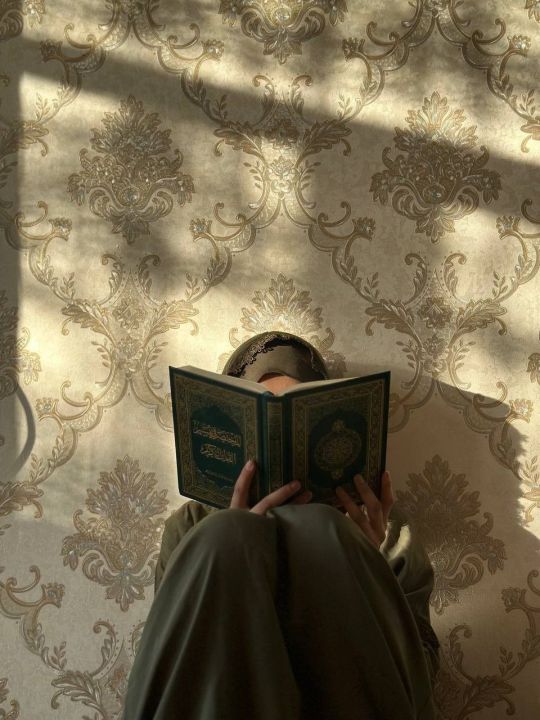
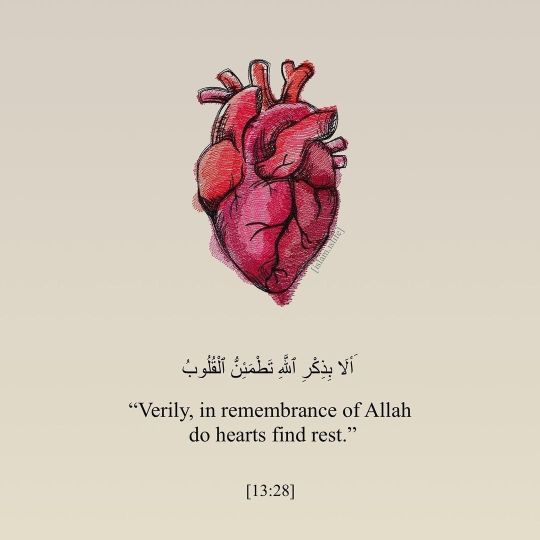

prayers
"serve Me, and observe Prayer for My remembrance" (20:15) - here, Allah Himself says that salat is a form of dhikr. these also include the sunnah and nawafil prayers alongside the fard prayers
recitation of the Holy Qur'an
"We ourself have sent down this Reminder, and most surely We will be its Guardian" (15:10) - Allah uses the word 'dhikr' here for the sending down of the Qur'an, which shows that reciting the Qur'an is a form of dhikr too and should be done daily.
"And this is a blessed Reminder/dhikr that We have sent down; will you then reject it?" (21:51).
repeatedly making mention of Allah's attributes
"And when you have finished the Prayer, remember Allah while standing, and sitting, and lying on your sides" (4:104) - Allah asks us not to just remember him and do dhikr during salat, but all the time too. the different dhikr you can say are:
- laa ilaha il Allah (there is no God but Allah)
- subhanallah x33, alhamdulillah x33, Allahu Akbar x34 (Holy is Allah, all praise belongs to Allah, Allah is the Greatest)
- alhamdulillah (all praise belongs to Allah)
- astagfirullah (i seek Allah's forgiveness)
- ayatul kursi (2:255)
- la hawla wa la quwwata illa billah (there is no power except from Allah)
- subhanallahi wa bi-hamdihi, subhanallah hil-Adhim (Holy is Allah and worthy of all Praise; Holy is Allah, the Great)
#islam#muslim#religion#prayers#allah#quran#islamic#muslims#sabr#sabrgirl#dhikr#zikr#azkar#tasbeeh#prayer#salah#salat#remembrance of God#remembrance#tawakkul#islamdaily#islampost#hadith#islam help#revert#tawheed#zikrullah
249 notes
·
View notes
Text
April 17, 2024: You Belong to the World, Carrie Fountain
You Belong to the World
Carrie Fountain
as do your children, as does your husband.
It’s strange even now to understand that
you are a mother and a wife, that these gifts
were given to you and that you received them,
fond as you’ve always been of declining
invitations. You belong to the world. The hands
that put a peach tree into the earth exactly
where the last one died in the freeze belong
to the world and will someday feed it again,
differently, your body will become food again
for something, just as it did so humorously
when you became a mother, hungry beings
clamoring at your breast, born as they’d been
with the bodily passion for survival that is
our kind’s one common feature. You belong
to the world, animal. Deal with it. Even as
the great abstractions come to take you away,
the regrets, the distractions, you can at any second
come back to the world to which you belong,
the world you never left, won’t ever leave, cells
forever, forever going through their changes,
as they have been since you were less than
anything, simple information born inside
your own mother’s newborn body, itself made
from the stuff your grandmother carried within hers
when at twelve she packed her belongings
and left the Scottish island she’d known—all
she’d ever known—on a ship bound for Ellis Island,
carrying within her your mother, you, the great
human future that dwells now inside the bodies
of your children, the young, who, like you,
belong to the world.
--
Also by Carrie Fountain: Will You?
More like this:
-> The World Has Need of You, Ellen Bass
-> Why I’m Here, Jacqueline Berger
-> from Burial, Ross Gay
-> Poem to My Child, If Ever You Shall Be, Ross Gay
Today in:
2023: Mammogram Call Back with Ultra Sound, Ellen Bass
2022: Catastrophe Is Next to Godliness, Franny Choi
2021: Weather, Claudia Rankine
2020: The Understudy, Bridget Lowe
2019: Against Dying, Kaveh Akbar
2018: Close Out Sale, Cristin O’Keefe Aptowicz
2017: Things That Have Changed Since You Died, Laura Kasischke
2016: Percy, Waiting for Ricky, Mary Oliver
2015: My Heart, Kim Addonizio
2014: My Skeleton, Jane Hirshfield
2013: Catch a Body, Oliver Bendorf
2012: No, Mark Doty
2011: from Narrative: Ali, Elizabeth Alexander
2010: Baseball Canto, Lawrence Ferlinghetti
2009: Nothing but winter in my cup, Alice George
2008: Poppies in October, Sylvia Plath
2007: I Imagine The Gods, Jack Gilbert
2006: An Offer Received In This Morning’s Mail, Amy Gerstler
2005: The Last Poem In The World, Hayden Carruth
22 notes
·
View notes
Text
by Dahlia Lithwick, Masua Sagiv
he casual verbal slippage between war photojournalism and crime scene photography is manifest in another simple trick: In announcing the AP’s win, the award organizers reposted the unblurred image of Louk on their Instagram page but neglected to include her name. Her name did, however, appear in the prize announcement on the award website, in which the chosen caption says it all:
Heavy Israeli airstrikes on the enclave has killed thousands of Palestinians. Palestinian militants drive back to the Gaza Strip with the body of Shani Louk, a German-Israeli dual citizen, during their cross-border attack on Israel, Saturday, Oct. 7, 2023.
That caption reorders the sequence of events, as if the subsequent bombing of Gaza were the cause of the cross-border attack. In this telling, these militants found themselves with a half-naked female “body” in the bed of their truck in some accident of war. It distorts the fact that Louk was murdered during a cease-fire and her corpse taken as bounty. Deliberately conflating Hamas’ sexual violence, kidnappings, and burning of women and children with acts of combat gives away the game from the start. However you opt to perceive it, an atmosphere that celebrates this image sets back decades of international legal advances recognizing the dignity and rights of women.
Perhaps the photo merits an award by sensitively capturing the plight of the victims of Oct. 7? That was the line the AP’s vice president of corporate communications, Lauren Easton, gave following international outrage about the prize. “Documenting breaking news events around the world—no matter how horrific—is our job,” she said. “Without AP and other news organizations, the world would not have known what was happening on Oct. 7.” But that is also untrue. In this case, the perpetrators filmed their own acts in viral videos captured on GoPros and livestreamed them to the world, screaming “Allahu Akbar!” (“God is great!”) and driving through the streets. In other instances such footage was shared with the victims’ families using the victims’ own phones. One could well ask whether we should consider a journalistic image of one of the most photographed violent pogroms in modern history to constitute essential newsgathering or whether we should instead regard it as prurient rubbernecking. Yet the Donald W. Reynolds Journalism Institute saw fit to reward the impulse with a prize.
Images of war can be aimed at producing empathy for the victim or anger and disgust toward the perpetrators (or both). Indeed, most of the photos that garnered this prestigious prize do just that. This photograph does neither. The victim, Louk, is an object, almost illegible as a person, reduced by her captors to a trophy. The perpetrators delight in that fact. Most remarkable about the picture is the extent to which it manages to simultaneously deny the crime and celebrate it. On its face, the photo and the caption accompanying it evince no interest at all in how she came to be a “body,” instead observing the time-honored adage invoked whenever a female victim is involved: “She deserved it.”
#shani louk#ap#photography#hamas#gaza#media bias#war photography#dehumanization#donald w reynolds journalism institute
19 notes
·
View notes